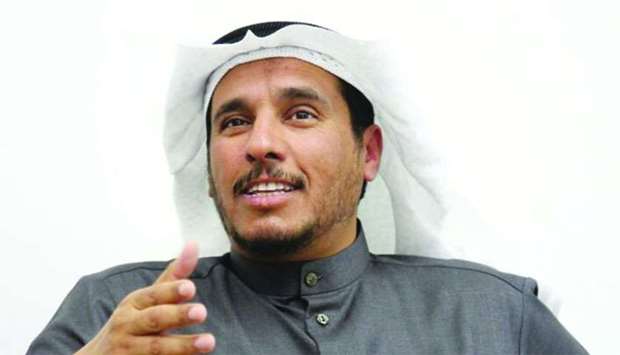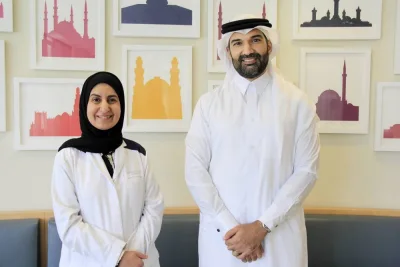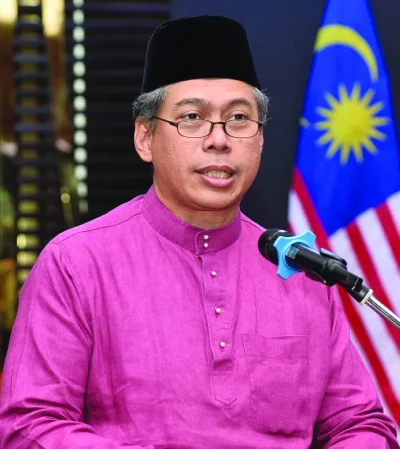The visit of His Highness the Amir of Qatar, Sheikh Tamim bin Hamad al-Thani, to Malaysia last December has ushered in a new future for Qatari-Malaysian relations at a crucial time for both the countries and all the Muslim East.
It comes at a time of the rise of a new political alliance in Malaysia, even though the political rivalry there is still going on. Such an alliance followed the historic struggle of Islamic thinker Dr Anwar Ibrahim, the second pioneer of the Islamic civilization experience in Malaysia, as he has endured the pain of struggle for putting the democratic process on track again.
This sacrifice had created an important popular ground that enhanced national integration between an important segment of the Malayan people and the Chinese Democratic Party, which guaranteed the victory and return of Dr Mahathir Mohamed to power.
Even though the political conflict between the two men went on, Malaysia is resuming its experiment with a new perspective.
Accordingly, such national diversity and economic partnership all together with the economic mentality of the Chinese Malaysians work for the benefit of Malaysia. This particular case is considered an important platform for a key partnership between the GCC represented in Qatar and Malaysia in East Asia. Malaysia is as well open to the Indian and Chinese people as part of its national fabric and constitutional bonds.
Currently, Qatar has been going ahead with its strategic project, away from the blockade countries, particularly the UAE and Saudi Arabia. Qatar's progress in reaching out to the new economic network would continue even after Sheikh Sabah al-Ahmad al-Jaber al-Sabah, the Amir of Kuwait, arrives at a solution to the Gulf crisis.
The second course is to transfer this co-operation to the fields of education, technology, science and specialised institutes. It can be in the form of building specialised and profit generating university cities in Malaysia. Such universities should address the issue of the unregulated pursuit of the young people in the Arab countries and the Islamic World, who have been kept on the long waiting lists for university seats, to guarantee them specialised academic education. It should give them the opportunity to complete higher education within the normal academic years while living in comfortable surroundings away from the areas of conflict. Besides, they should enjoy the individual dignity secured by Malaysia today.
Yet, this University City, suppose we call it 'Qatar education city in Kuala Lumpur' or any other place on the various islands of the archipelago chosen as its headquarters, would need to offer an intellectual progressive cultural content. Such content would reshape the mentality of the contemporary Muslim for the good of the positive thinking that works for the progress of the East and the making of the collective humanity partnership. This approach is incompatible with the Western imperial extortion, and the extremist discourses or the lack of knowledge that has hit the Islamic world.

Islamic thinker Dr Anwar Ibrahim
Thus, the outcomes of education at this university would represent an incentive for many countries in Asia and Africa. It would further encourage the creation of a national partnership among Muslims and all the citizens of the East from the other religions sharing their land to create a culture industry that work towards the progress of the East, its independence and scientific advancement. In particular, such a platform would be focusing on the specialised fields needed by these countries from physiology to space science. Eventually, educational institutes would be created to reproduce the ethical wise thinking industry for the whole world.
Ethics has always been the message of the East starting from the individual conduct up to the family affairs as values kept apart from the mundane world thinking. The tyranny, ignorance and backwardness that colonialists used in fostering their interest obscured this message creating a big void, filled nowadays with a perverse course of conduct. Such course of conduct promotes individualism over society integration and encourages absolute perverseness within the communities of the society. It threatens the future of the family and the safety of childhood throughout the entire humanity.
As for the third course, it is aimed at easing the hardships of wars and civilian conflicts that have been hitting the Middle East. This can be achieved through forming a strategic intellectual base to be used to create an international centre for the resolution of conflicts in coordination with the United Nations and the countries interested in this view. In addition, it can devise perspectives for practical solutions of the issues of migration and refugees.
In this way, the partnership with the East is a message to save humanity and it would be a quantum transformation at international co-operation. The people of the East are esteemed in most world countries that are plagued by troubles. Similarly, the failure of the West to contain conflicts caused by some of its countries would further deepen the need for this partnership. The West, in particular the wars of United States and Russia, created such conflicts in the East besides the interventions of their military bases stretching across its different countries. All such things would not obstruct the creation of partnership between the East and the West with of course an intentional cover to enhance the suggested projects. It can also co-operate with already existing experiences such as the Swiss model in Cordova Area.
However, the Qatari-Malaysian partnership here, with its Islamic and Arabic dimensions, has the potential to create opportunities for the humanitarian settlement of the issues of conflict. In addition, the suggested Qatar Education City in Malaysia would create a qualification programme for professionals, who would be appointed to manage the areas of conflict after the settlement process. This course of action would reactivate the engagement of the East in treating its crises but with a progressive modern spirit for the good of its people rather than promoting the interests of the West.
It is an opportunity awaiting success to respond to the aspirations of the people of Asia in developing such co-operation between these two important capital cities in Asia. This spirit and ideas could also create platforms of dialogue to treat the crisis of religious and faith standoffs in Asia. The ultimate aim is to unite all the forces for the creation of a civilian awakening that would enlighten the future of the East.
(Translated from the original article in Arabic by Gulf Times)
*
About the Author
Mahanna al-Hubail was born in Al Zahran in Saudi Arabia in 1963. He is an independent Arab researcher and political analyst. He is settled outside Saudi Arabia and does not practise any political views or have any partisan alliance or obligations. He does not have any cultural or political links to any country. He has published many of his writings in various Arabic papers and contributes to Al Jazeera.net and various magazines. In particular, he talks about the concept of the Islamist progress and the strategic affairs of the GCC region and the regional and international developments in the GCC region.



